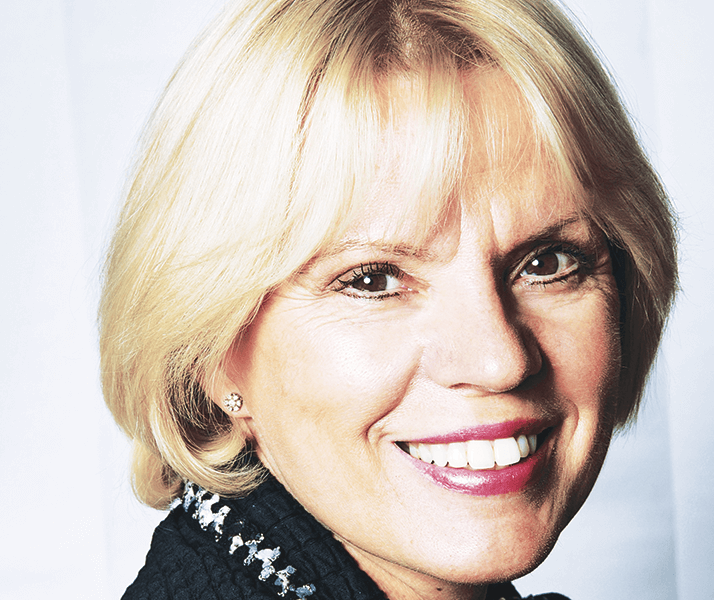
Why analytical chemistry? When I was young, I didn’t believe I would be a scientist because I didn’t like the idea of being locked alone in my “tower”, only focused on a research project. But then I realized that scientists can create their own world. At university, I wasn’t sure what to specialize in, but my Bachelor’s research project (developing a new method for determination of metals using gas chromatography) was so interesting that I continued it all the way through to my PhD. I used many instrumental techniques during that time and became hooked. There is a clear and strong link between analytical chemistry and the real world; basic research is clearly tied to applications. And while many other fields use analytical chemistry, we must always remember that it is a discipline in its own right – not simply a tool.
You became a full professor just four years after completing your PhD. How? In Finland, positions for professorships are completely open. I was one of ten competitive applicants – and the only woman. The other nine were already associate professors. The application process uses outside evaluators – in our case, four very well respected and well-known international professors – whose role is to independently assess the quality of publications. They decided that, even though I was young, I was of the right caliber. But the faculty makes the final decision based on those assessments and, to tell the truth, I was the second choice; the first, an electrochemist, accepted a professorship at his current university, and so the position was offered to me. Even still, I feel the faculty was quite modern in its thinking back then. The issue of equality in science was raised in one of our editorials… Yes, I noticed that there were only eight women in your Power List. How do we increase the representation of women in science? That’s a good question – especially for me as the mother of two clever daughters. But, actually, I’ve never really faced the kind of opposition that others appear to – I’ve always received full support. Though I must admit that back in the early days, when people came to my office, they assumed I was the secretary and asked for Professor Riekkola – it annoyed me then, but now I just laugh. Enforced support could be one answer. When faced with the choice of two good but equal candidates, should we always choose the female? In our physics department, they have elected to follow that kind of politics. Unfortunately, I think women have a tendency to be too self-critical – if we believe in ourselves and our abilities more, it is easier to strive for higher level positions. I think role models are also very important.
Would you consider yourself a role model for women in science? Well, I was the first female full professor in Finland – and when I started I was also pregnant. The majority of the science faculty was male and they didn’t really know how to handle a pregnant professor. But I proved that gender didn’t matter – it is the results that count. I was also involved in an EU project – “Advanced Training for Women in Scientific Research” – where I mentored a younger female scientist in career development amongst other things. Actually, the interesting discussions we had were also helpful for me. Your research is divided into two areas... Yes – environmental and bioanalytical. For the former, our laboratory belongs to the Academy of Finland’s Centre of Excellence in Atmospheric Science, where we are interested in the chemical composition of nanoparticles and the development of sampling devices and portable instruments. On the bio side, we’ve been working on lipoproteins and extracellular matrix components for a long time. More recently, we’ve started to look at the use of new biomaterials in innovative separation devices.
You’re also an editor for Journal of Chromatography A. What research has caught your eye? There are lots of new things going on right now – miniaturization and biochip systems, for example. Mike Ramsey’s work is fascinating. I’m also very interested in those who are making the most of the exciting work being done by excellent scientists in the materials field. Computational and molecular dynamics modeling and their integration into analytical techniques is another hot area. But we must remember that we always need strong theoretical people to maintain fundamental research so that we can understand why we get certain results. Being an editor forces me to keep a finger on the pulse of research around the world – I can see how research is taking giant steps forward in China, for instance. As I check the manuscripts that come in, I can witness the advancements that are being made by groups all over the world – it’s just like being at the cinema, watching a movie of progress! How has analytical chemistry changed over the years? In many fields, researchers have understood not only the value of chemistry, but that analytical chemistry and its associated techniques are an absolute requirement. Each year, I notice the increase of students from different discplines attending my chromatography lectures. Biology, ecology, physics – they have all started to understand how important analytical chemistry is. I think we are much more appreciated nowadays.




